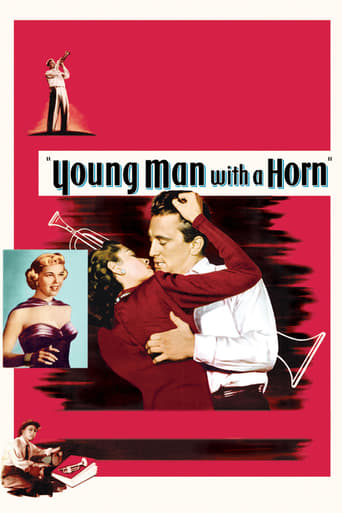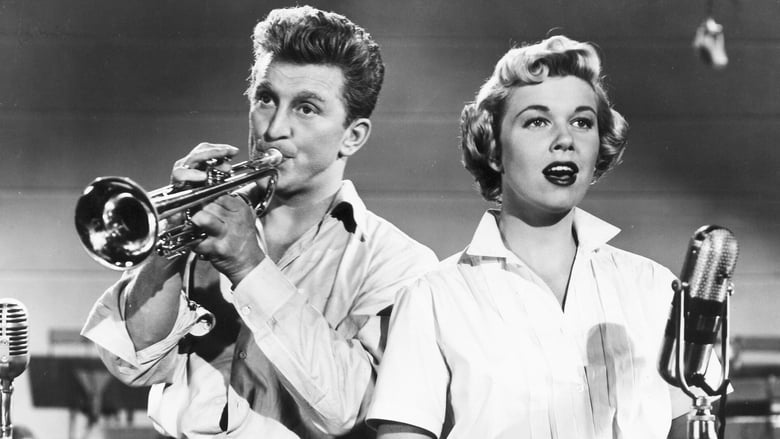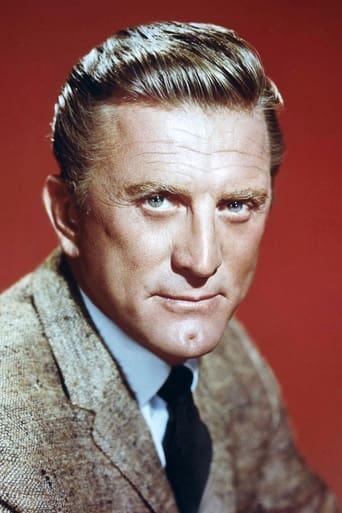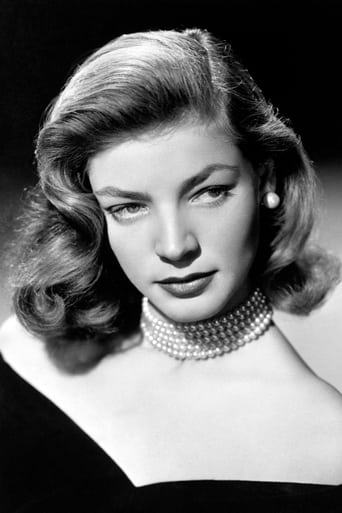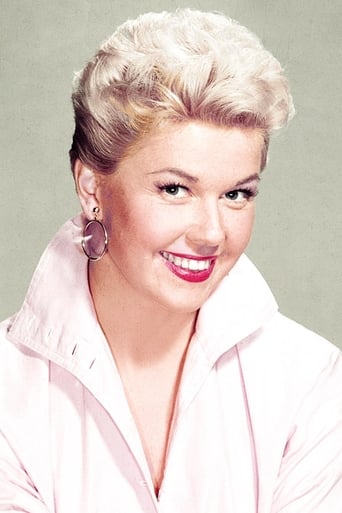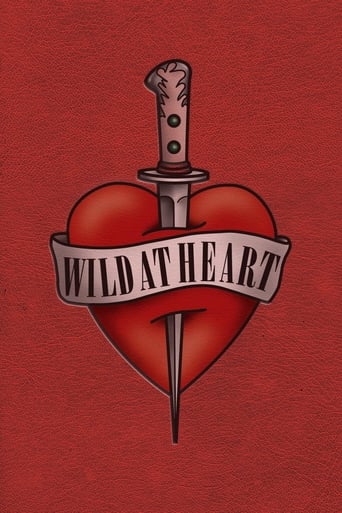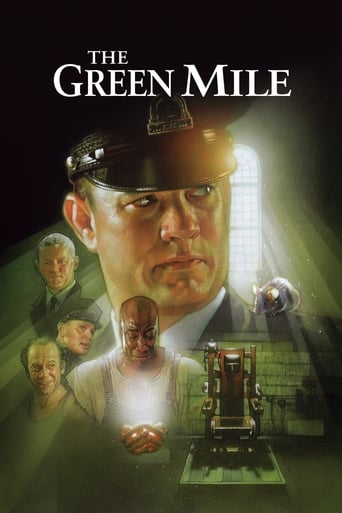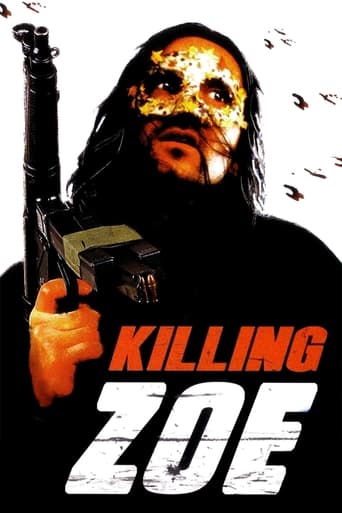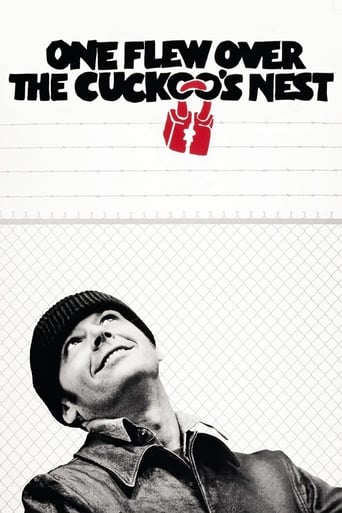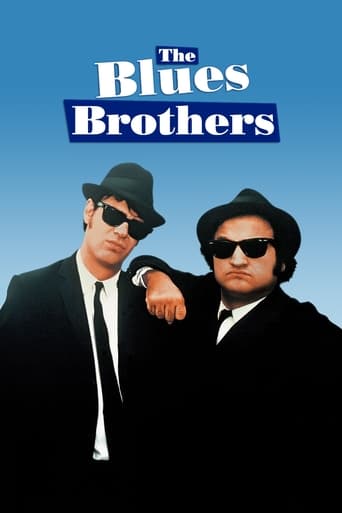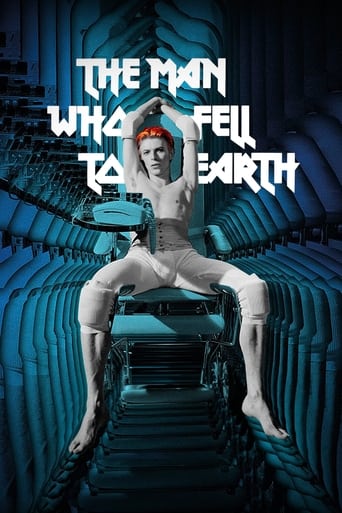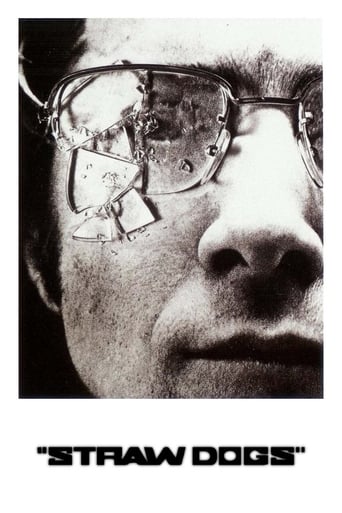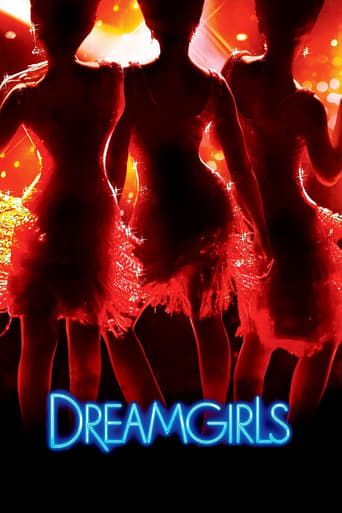Young Man with a Horn (1950)
Legendary trumpeter Art Hazzard teaches young Rick Martin everything he knows about playing, so Rick becomes a star musician, but a troubled marriage and the desire to play pure jazz instead of commercial swing songs cause him problems.
Watch Trailer
Cast


Similar titles
Reviews
I have never been able to discover why the title was changed from "Young Man with a Horn" to "Young Man of Music" when this film was shown in Britain. Did the British Board of Film Censors take exception to that rather obvious double-entendre in the original title, something which unaccountably escaped the notice of their American counterparts? Or was the change made in the interests of musical accuracy? The hero, after all, does not actually play the horn, at least not in the sense in which Classical musicians would understand the term. I know that jazz trumpeters (and also saxophonists) sometimes refer to their instruments as "horns", but this is primarily an American usage which might have confused British audiences. (In Australia it became "Young Man with a Trumpet").The film follows the rise, fall and rise again of a jazz trumpeter named Rick Martin. Besides Martin himself, it also focuses on four people who play important roles in his life. These are Art Hazzard, the man who teaches Rick how to play the trumpet, his close friend the piano player Smoke Willoughby, Jo Jordan, a singer who falls in love with him, and his wife Amy. (It has been suggested that Rick was based upon Bix Beiderbecke).Unusually for a film from the early 1950s when Hollywood still operated an unofficial colour-bar and black actors were mostly confined to minor roles, often as domestic servants, this one features a major black character in the shape of Art. Art, himself an outstanding jazzman, is not just Rick's teacher and mentor but also, in a sense, his adoptive father. (Rick is an orphan who never knew his biological father and whose mother died when he was a child). The name "Art" may be short for "Arthur", but I wonder if its use here was meant to imply Art's "artistic" nature. A theme of the film is the schism between two very different forms of jazz. There is the predominantly white music of the big bands and dance orchestras. This is a "conservative" style in that the musicians need to keep to a strict rhythm that people can dance to and play exactly what is written in the score. And then there is the traditional jazz favoured mostly by black musicians, much "freer" than the big band sound, both in the sense that the rhythm is less strict and in the sense that it allows the musicians more scope for improvisation and experimentation. Although Rick is white, the influence of Art means that he is instinctively drawn to this "black" music, but he nevertheless has to earn his living playing in an orchestra. (There is no money to be made from trad jazz). The differences between these two forms of music are reflected in the differences between the two women in Rick's life, although the parallels are not always exact. Jo, a sweetly innocent girl-next-door type who shares Rick's passion for jazz, can be seen as the safe, predictable conservative option. The beautiful, sophisticated Amy, who is studying to become a psychiatrist, seems to Rick to be more of a free spirit, spontaneous, unpredictable and dangerous, even though she has little interest in music. Despite their widely differing personalities, the two women are initially friends, although their friendship does not survive their rivalry over Rick. Paradoxically, Amy both looks down on Jo and envies her. She says of her "It must be wonderful to wake up in the morning and know just which door you're going to walk through. She's so terribly normal."It is precisely because Amy is not "terribly normal" that Rick marries her- and it is for the same reason that their marriage proves a failure. Even a free spirit like Rick needs some order and stability in his life, and a woman like Amy, who has deep psychological issues due to the suicide of her mother, is precisely the wrong person to provide it. (It is also suggested that Amy may have lesbian tendencies, although the Production Code meant that this suggestion had to be very veiled. So veiled, in fact, that Lauren Bacall never realised she was supposed to be playing a lesbian). The failure of his marriage sets Rick on a downward spiral in which he abandons his career and descends into alcoholism.There are a number of excellent acting performances, including Juano Hernández as Art and Hoagy Carmichael as Smoke. (Carmichael was best- known as a musician, but he made a number of acting appearances, generally playing a musician). I have not always been the greatest fan of Doris Day, but here she is excellent as the naive but wholesome Jo, as is Bacall as the husky-voiced sophisticate Amy. Both seem absolutely made for their roles to the extent that I could not imagine any other actress playing them. I could certainly not, for example, envisage Bacall as Jo or (even less) Day as Amy. And then of course there is Kirk Douglas as Rick; this may not be his most celebrated performance, but it is certainly one of his best, seeming to prefigure another film, "Lust for Life" about Van Gogh, in which he played a conflict-ridden artist.Other excellent features include the jazz score- the trumpeter Harry James actually performed the music Douglas is shown playing- and Michael Curtiz's striking photography of the New York urban scene; I wondered if this was an influence on Woody Allen's "Manhattan". The one weakness was the ending; the story of Rick's rise and fall is told in detail, but the story of his rise again in which he kicks his drink habit and rediscovers his love of both Jo and jazz seemed very rushed, something tacked on to provide the expected happy ending. Overall, however, this is the best film I know about jazz music. 9/10
Directed by Michael Curtiz, "Young Man With a Horn" (titled "Young Man of Music" in some countries) stars Kirk Douglas as Rick Martin, a young jazz cornetist. The film's loosely based on the life of Bix Beiderbecke, an influential jazz soloist."Horn's" first act watches as Rick is tutored by jazz-man Art Hazzard, warmly played by pioneering black actor Juano Hernandez. Its latter sections watch as Rick mingles with two lovely ladies, one played by Lauren Bacall, the other by Doris Day. Bacall, uptight and overly analytical, resents Rick, who's carefree, improvisational and to whom great achievements seem to come naturally. Rick, meanwhile, grows to detest himself. He finds it impossible to reach "the high notes", and seems desperate to attain some intangible, transcendental greatness through music. The film then ends with Rick settling down with Day's character; a man must first learn to be a good man, husband and friend, Curtiz opines, before he becomes a great artist.The film's message is a false adage, but it's perhaps one which Curtiz believed in and which he perhaps believed applied to his own life. Curtiz, incidentally, would make over a hundred and fifty films, leading to some dubbing him the ultimate "studio hack". Academics and film aficionados have tried to rehabilitate him as an auteur, some looking for common themes in his work (your typical Curtiz flick hinges on a guy who unwittingly becomes a rebel, or becomes an outsider/rebel despite his best efforts), but it always seemed to me that Curtiz's speciality was this: the man knew how to direct the hell out of bars, restaurants and nightclubs. Indeed, Curtiz's filmography is filled with some of the finest bars and nightclubs in cinema history (Rick's bar in "Casablanca" is his most famous), with their moody lighting, sparkling ambient music and collections of well drawn bodies and faces. In "Horn's" case, we have a series of lower and upper class dives, the former frequented by gangsters, drunks and jazz bands, the latter fronted by an impeccably dressed Doris Day, glittery and with the voice of an angel.Bizarrely, Kirk Douglas' Rick shares the name of the hero of Curtiz's "Casablanca". A coincidence, perhaps, though both films feature similar love triangles. Regardless, "Horn" sees Curtiz operating at the height of his aesthetic powers, with some juicy, norish black-and-white cinematography (by Ted McCord), some good location photography, some von-Sternbergian expressionism and another ice-cool performance from Lauren Bacall, whose character feels at a loss as to which course to pursue in life. On the downside, the film becomes increasingly thin as it progresses, its first act overloads on boyish sentimentality and it has very little to say about jazz, the culture of jazz or even the aesthetic of jazz itself (the latter perhaps embodied best by Robert Altman, particularly with films like "The Long Goodbye").8.5/10 – See Howard Hawks' underrated "To Have and Have Not" and Vincente Minnelli's "The Clock" and "Some Came Running". Worth one viewing.
***SPOILERS*** We get the story of confused and wayward trumpeter Rick Martin, Kirk Douglas, straight from the horses mouth Rick's good friend and pianist Willie "Smoke" Willoughby,Hoagy Carmichael. It was Willie who witnessed as well as suffered through Rick's greatest and worst moments in the movie. By the time Willie starts talking, at the start of the film, were not quite sure that by the time he finishes his monologue that Rick would be either alive or dead to hear it!As well soon see Rick Martin was in love with music and the music of his choice was jazz. Blowing up a storm with his trumpet Rick made heads turn not in how good he played his trumpet but how he put a little bit of heart & soul into it that most true and traditional music lovers found to be almost blasphemous! It was his good friend and mentor jazz trumpeter Nat Hazzred Juano Hernandez, who took a young Rick under his wing and taught him everything that he knew about playing the trumpet. In the end Rick, who was too into himself to care about anyone else, turned his back on an old and sickly Nat that had the old guy aimlessly walk into a major thoroughfare in midtown Manhattan and end up getting himself killed!What really shook Rick up was his strange attraction to collage psychology student Amy North, Lauren Bacall, whom he ended up marrying. Amy a closet lesbian was not in love with Rick but only interested in his success in the music world and wanted some of it to rub off on her! When Martin found out that Amy was having an affair behind his back not with another man but woman young art student Miss.Carson, Katherine Krasch,he completely flipped out! By then Rick's music career was already on the skids in him alway doing it, playing his trumpet, his way or no way at all. But in the fact that he was dumped by Amy for another woman was just too much for Rick to take!***SPOILERS*** It was Amy's friend who in fact introduced her to him band singer Jo Jordan, Doris Day, together with Willie who came to Rick's rescue when he was on both life support and in the drunk tank at Bellevue Hospital. Looking as if he was on his deathbed Rick managed to pull himself together and finally get off the sauce,liquor, and went back to playing his trumpet that he in a drunken stupor had earlier discarded. As the movie ends we see Rick, as a member of the band, belting away with his trumpet and hitting the both high and low notes as band singer Jo Jordan or Doris Day sings a sweet and beautiful rendition of "With a song in my heart".P.S "Young Man with a Horn" is one of the few if not only movies, that I can think of, made over 60 years ago that still has it's top or leading actors-Kirk Douglas Lauren Bacall & Doris Day-still alive with us today!
This movie is generally described as "loosely based" on the Dorothy Baker novel, which in turn is "loosely based" or "inspired by" the career of Bix Beiderbecke. Wrong. The movie has absolutely nothing to do with Bix's life. Even the musical instrument involved is not the same--Bix played a cornet, which has a somewhat different sound quality from the trumpet "played" by Kirk Douglas here.I could list the details of the career of Rick Martin (the lead character played by Douglas)and compare them with those of Bix, but I would be here all day. There simply are no details that are similar.One good thing about the movie is the trumpet music supplied by "musical consultant" Harry James, which is dubbed for Douglas. Anyone who enjoy's Bix's wonderful solos, however, will see no similarity at all in sound or style between Bix and James. Not that it matters that much, given what I've already said about the movie.Kirk Douglas plays Kirk Douglas--not a bad thing, really. Lauren Bacall, who is really beautiful in this film, plays an unbearably self-centered, spoiled woman, and the character is really quite a bore. Every time she appears on screen, the movie grinds to a halt, unless you take all her posturing and foolish talk seriously.Bix pretty much killed himself by drinking and never developed into the great jazz master that he seems destined to have become. But even so he gained the respect of an undoubted master, trumpeter Louis Armstrong, and Bix was influenced early on by Armstrong's innovative performances, though the two men really did not play the same sort of music.In the movie, the "Armstrong" character is a trumpeter named Art Hazzard, played by Juano Hernandez. While Armstrong was a man of enormous gifts,appetites, and personality--a real force--the part written for Hernandez is more that of the "kindly Negro" favored in the 1950s by those professing to have no race prejudices. It's quite a comedown for Hernandez, who was wonderful, two or three years earlier, in his role as Lucas Beauchamp in the movie adaptation of Faulkner's "Intruder in the Dust." Hoagy Carmichael, who knew Bix Beiderbecke, does his usual shtik as the piano player who's been around. We see him at his piano, endlessly smoking. Another boring performance in the film.And then there's Doris Day--lovely and talented and delightful to see and hear. When she is on screen, this otherwise dumb movie just lights up.

